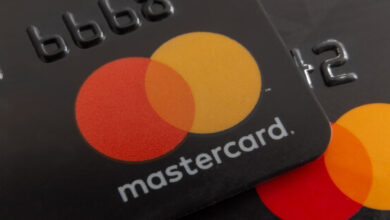Riksbank’s Final Report on e-Krona Explores Offline Payment Solutions helobaba.com

Sweden’s Riksbank concludes its e-Krona pilot, highlighting the development of offline payment technologies like “shadow wallets” and payment cards.
Amid the global race to digitize national currencies, the Riksbank, Sweden’s central bank, has concluded its e-Krona pilot project, releasing a comprehensive report detailing its findings on offline functionality and how it could enhance the end-user experience. This exploration into digital currency represents a significant step in modernizing the financial system and addresses a critical aspect of digital currency — the ability to transact without an internet connection.
The digital krona pilot project, which the Riksbank has been conducting to evaluate the feasibility and practicality of a central bank digital currency (CBDC), has now examined the potential for offline transactions. The concept of a “shadow wallet” was introduced, which would allow users to store a certain amount of e-Krona on a payment card or a mobile phone application to enable transactions even when connectivity is unavailable. This idea addresses concerns about accessibility in cases of network failures or for users in remote areas where internet service might be unreliable.
The “shadow wallet” functions by maintaining a copy of the user’s balance that can be used for transactions without the need for real-time communication with the central database. However, while the offline mode offers added convenience and redundancy in the payment system, it also presents challenges concerning security and fraud prevention. The Riksbank’s report indicated mixed results, suggesting that while the technology to facilitate such transactions exists, further work is needed to ensure robust security measures are in place.
The findings of the pilot are particularly relevant as countries look to CBDCs as a means of simplifying and securing digital transactions. With Sweden being one of the most cashless societies in the world, the move towards a CBDC fits naturally with the country’s progressive approach to financial technology. The Riksbank’s exploration of offline transaction capability is a reflection of a broader trend as central banks worldwide consider the implications and logistics of introducing digital currencies.
As the Riksbank continues to refine the e-Krona’s functionality, it must address key issues such as scalability, interoperability with existing payment systems, and user privacy. The central bank will also need to navigate regulatory frameworks and ensure that the introduction of a CBDC does not destabilize the existing financial system.
The digital krona project stands as a testament to the ongoing evolution of money in the digital age. The Riksbank’s commitment to developing a CBDC that meets the needs of its citizens while maintaining a high level of security and efficiency will continue to guide their research and development efforts. As Sweden moves closer to potentially issuing a CBDC, the world watches with keen interest in how these innovations might reshape the landscape of banking and commerce.
As the Riksbank moves forward, the international financial community will be closely monitoring the outcomes and insights gained from Sweden’s digital currency experiments. The success of the e-Krona could serve as a blueprint for other nations considering the implementation of their own CBDCs, marking a significant shift in how we understand and utilize money in an increasingly interconnected world.
Image source: Shutterstock









